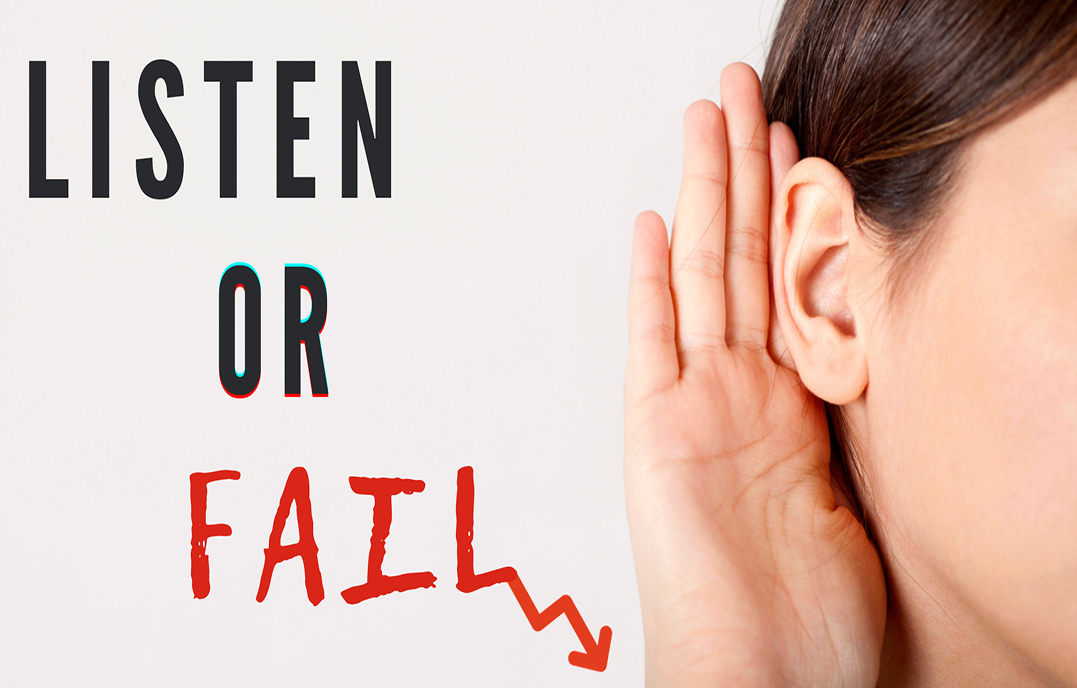Let’s face it. Most of us are terrible listeners. As we fought our way up the corporate food chain, our conversations were opportunities to prove our intellectual prowess. We wanted to get ahead and stay ahead, and that meant convincing others that our ideas were the best.
By the time we become senior leaders, anyone who dares to challenge our ideas gets the full force of our well-honed ability to establish that we’re right. Winning all the debates becomes the norm. We actually begin to believe that we are the smartest person in the room. But deep down, we know that we don’t have all of the answers. We don’t even have all of the questions.
Danger often has a very weak signal
It’s critical to be able to hear danger, which often has a very weak signal. If there is a lag in your ability to hear it, you’re going to be in trouble because the rest of the world – the press, social media – is a gigantic amplification system for these signals. The failure may happen rapidly — the danger signal came, you didn’t react, and it got you. Or it may occur in a more gradual way, when an accumulation of all your bad listening practices erodes personal relationships, causes you to make lower-quality decisions, or leaves you unable to monitor implementation. Eventually, executives who don’t listen lose the support of their teams and colleagues. And once you’ve lost that support, it’s almost impossible to get it back. You can’t be effective, and you will fail.
Changing behavior requires humility
Most people under appreciate the complexity of listening, the skills needed, and the value of doing it well. Everybody says you need to be a good listener, but it’s often more lip service than conviction.
Listening can be learned, but to change your behavior on any important dimension you’ve got to have deep self-awareness. You have to want to change — you can’t fake it. You have to move from 90% tell, 10% listen to closer to 50-50.
This requires patience. Conversations with many senior leaders have the following subtext: “I’m smarter than you and I know what you’re going to tell me, so let’s make this really efficient for both of us. I won’t have to listen, and we can get to the really important part of the conversation: me telling you what to do.” What does this save, really? Three minutes? We’ve all got three minutes to spare. When you boil it down, it’s not really about efficiency. It’s about humility.
Of course, at the other extreme, listening doesn’t mean being a witless receiver of information or taking a monk-like “hear and say nothing” posture. We have to process what we’re hearing, think about what it means, and make decisions. Still, before you make a decision, you’ve got to make sure the listening has happened so that you have sufficient information.
Most of the job of a senior executive is not about deciding on the right thing to do–that’s pretty easy. The hard part is setting aside your own hubris to become better at questioning than answering, and listening for the signals.
Question: How much time do you spend talking versus listening in meetings?
Driven by the premise that excellence is the result of aligning people, purpose and performance, Center for Executive Excellence facilitates training in leading self, leading teams and leading organizations. To learn more, subscribe to receive CEE News!




